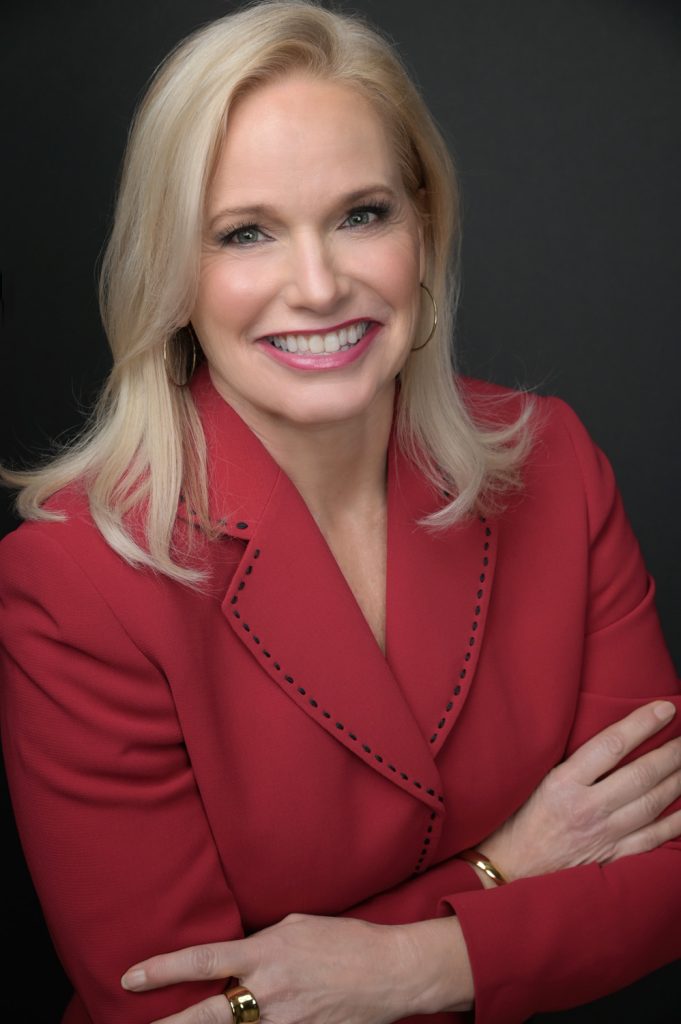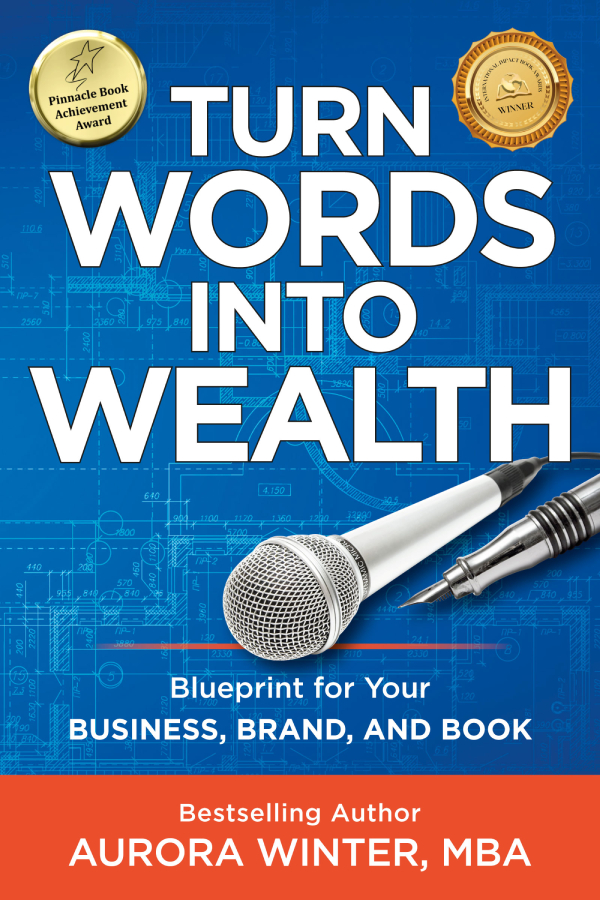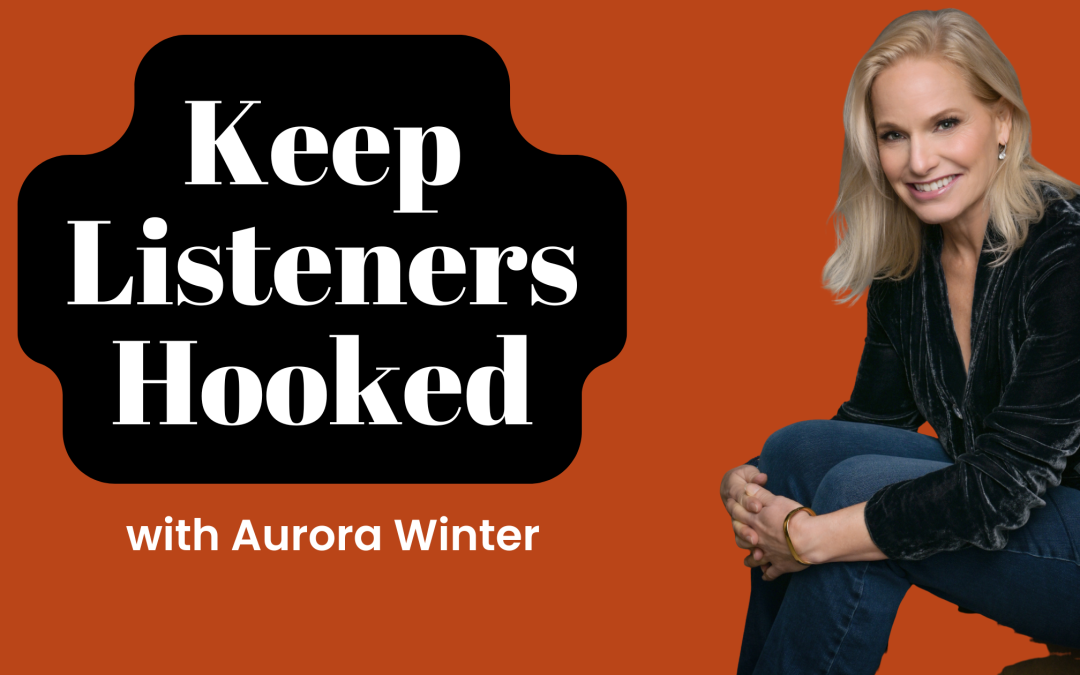Listen to this week’s episode.
Listen On Your Favorite Podcast App | Watch on YouTube
If you’re a podcaster, you already know this truth: keeping people listening is harder than getting them to click “play.”
There’s so much content out there. Everyone’s got a mic, a message, and a moment to grab attention. But the difference between a show people sample and a show people subscribe to comes down to one thing — connection.
And not just “Hey, I like your vibe” connection. I’m talking about the kind of connection that keeps people curious, emotionally engaged, and coming back for more.
That’s exactly what I explored in a recent conversation with Aurora Winter — award-winning author, former TV producer, and founder of Same Page Publishing. Aurora helps entrepreneurs and creators turn their words into wealth — literally. Her insights into the neuroscience of communication were so powerful, I had to bring them here to unpack further.
Because let’s be honest: if you can understand how people’s brains respond to stories, curiosity, and authenticity… you can master the art of keeping listeners hooked.
Who is Aurora?

Today’s guest is Aurora Winter, MBA—an award-winning author, seasoned TV producer, media coach, and serial entrepreneur. She brings a unique blend of storytelling, neuroscience, and business savvy to help thought leaders turn their message into powerful books, brands, and multiple income streams.
If you’ve ever thought about writing a book, expanding your podcast into a platform, or making a bigger impact with your voice—this episode is for you.
The Science Behind Curiosity (and Why It Matters for Podcasters)
Aurora dropped this gem early in our conversation:
“You need to trigger curiosity — and keep it triggered.”
That right there is the backbone of what great podcasters do, whether they know it or not. Most of us open strong — a good hook, a solid intro, a question that makes people lean in. But here’s the problem: we trigger curiosity once and then never re-engage it.
The brain loves an open loop. When you pose a question, set up a mystery, or hint at a story that’s not quite finished, your listener’s brain literally stays alert, waiting for the resolution. It’s a tension between the known and the unknown.
Aurora explained it like this — if your podcast is 30 minutes, you can’t afford to trigger curiosity at the beginning and then let it die out. You’ve got to re-spark it every few minutes. Drop a “coming up next,” open a new question, or tease a story you’ll circle back to later.
Think of your episode like a movie trailer in motion — suspense, relief, suspense, relief. That rhythm keeps the listener’s brain awake and engaged.
So, if your retention numbers drop halfway through your episode? That’s not a lack of content value — it’s a lack of curiosity maintenance.
Authentic Energy Is Your Superpower
Aurora also pointed out something that hit home for me — she said,
“You’re very authentic. You’re present. The energy is alive. People want to watch something alive.”
That right there is the secret sauce. The podcasts that thrive in 2025 and beyond aren’t the ones that sound polished or perfect — they’re the ones that feel real.
Listeners don’t want to feel like they’re sitting through a presentation. They want to feel like they’re part of a living, breathing conversation. Even your fumbles and pauses can create intimacy — they remind your audience that a real human is behind the mic.
When you show up authentically — not as a “podcaster persona,” but as your actual self — your energy transmits through the mic. And energy is contagious.
So yes, plan your content, but don’t over-script yourself out of your own magic. The moments that make people stay — and share — are the ones that feel real.
Know Who You Are Before You Press Record
Aurora said something else that’s worth pausing on:
“Who are you — even before you communicate with anyone else?”
That’s deep, but necessary. Because too many creators skip that inner work. They focus on downloads, brand deals, or trying to sound like someone else.
But the truth is, confidence in podcasting doesn’t start when you hit record — it starts when you know who the hell you are and what you stand for.
Write it down. Literally. Make a list of who you are, what you value, and what you care about. Aurora does this herself — she wrote that she’s a serial entrepreneur, committed to making a difference in the world, passionate about creative self-expression and free speech.
What’s yours?
Because when you know your “why,” every conversation, every guest, every story you tell has weight. You’re not just filling air; you’re building legacy.
The Hermit Crab Moment: Outgrowing Your Shell
Now, this was one of my favorite metaphors Aurora shared — she compared entrepreneurs and creatives to hermit crabs.
You know how hermit crabs outgrow their shells as they grow? They literally have to leave behind their old home — that comfortable, protective space — to find a bigger one. But the process is vulnerable. They’re exposed for a moment.
That’s us, too.
Maybe you started your podcast about one topic, and now you’ve evolved. Maybe you’re pivoting your niche, adding video, or bringing new layers to your storytelling. It’s uncomfortable, but necessary.
Growth always requires a shell change.
So if you’re feeling like your old format, style, or structure doesn’t fit anymore — good. That means you’re evolving. The trick is to embrace the vulnerability, not fight it. Because that’s where your next level creativity lives.
Tell Stories That Stick
Aurora shared a fascinating fact: stories are remembered 24 times more than facts alone.
That’s huge.
Think about it. When was the last time you remembered a statistic from a podcast? Now think about the last story that stayed with you.
Our brains are wired to connect through narrative. We remember emotion, imagery, and struggle — not bullet points. So even if you’re teaching something technical or business-focused, wrap it in story.
Don’t rush past the details. Paint the scene. Let your listener see what happened.
Aurora’s own story — of being a film producer frustrated by the lack of access for storytellers, and pivoting to publishing to help people share their own stories — sticks because it’s human. It’s personal.
The more you can tell those kinds of stories, the more your audience will remember you.
Reverse Engineer Everything
One of Aurora’s biggest takeaways for podcasters and creators: don’t wait until after you’ve made content to figure out how to use it.
She’s all about reverse engineering. Before you record your next episode, ask yourself:
- What problem am I helping my audience solve?
- Who is this really for?
- How could this content be repurposed later — as a blog, a book, or a course?
When you start with the end in mind, you save yourself time and multiply your impact.
Aurora even revealed that her bestselling book Turn Words Into Wealth started as a set of five videos. She filmed them, structured them around her key ideas — and later turned them into a book.
That’s how smart creators work in 2025. It’s not about creating more, it’s about creating strategically.
Monetize the Message
Let’s talk about money — because your podcast shouldn’t just be passion, it should be profit too.
Aurora broke down seven ways to monetize your message (and she dives deeper into this in her book). But the big takeaway? Bake your monetization strategy into your content from day one.
If speaking gigs are your lane, mention them casually in your episodes.
If you’re building an online course, drop subtle references to the process.
If you’re offering coaching or consulting, tell stories that naturally lead into those offers.
It’s not about “selling” — it’s about signaling.
You’re planting seeds in your audience’s mind so that when they need help, they already know who to turn to.
Be Everywhere That Matters
This was another smart, forward-thinking moment from Aurora — she said the game has changed. Search engines are evolving.
People aren’t just Googling anymore — they’re searching on ChatGPT, YouTube, and Amazon.
Let that sink in.
If you want your podcast and your message to be discoverable, you’ve got to show up where people are actually searching.
That means:
- Uploading your podcast to YouTube — with visual elements, shorts, or video highlights.
- Writing a book (even a short one) that solves a problem for your audience — and getting it on Amazon.
- Making sure your content lives where AI and algorithms can find it, quote it, and surface it.
Aurora pointed out that books listed on Amazon often appear on Goodreads — which is one of the sources AI tools pull from. So having your content indexed there gives you long-term discoverability that blog posts alone can’t match.
That’s next-level strategy right there.
The Real Secret: Be Human
In a world full of AI-generated everything — scripts, captions, templates, voices — Aurora ended with a simple but powerful reminder:
“Double down on being human.”
That hit me hard. Because at the end of the day, your listeners don’t just want information. They want connection. They want to hear you.
Your stories. Your setbacks. Your lessons.
That’s what builds loyalty. That’s what turns a casual listener into a community.
So don’t chase perfection. Chase presence. The more real you are, the more people will resonate with you.
Final Thoughts
If there’s one thing I took away from my conversation with Aurora Winter, it’s that podcasting is about more than broadcasting — it’s about braincasting.
When you understand how curiosity, story, and emotion work together, you’re not just talking into a mic. You’re creating a neurological experience that sticks with people.
So the next time you sit down to record, ask yourself:
- Am I sparking curiosity?
- Am I telling stories, not just giving facts?
- Am I showing up as my authentic self?
Because that combination — curiosity, story, and truth — is what keeps listeners hooked.
And if you’re ready to take your storytelling even further, check out Aurora’s book Turn Words Into Wealth or visit her at samepagepublishing.com. She’s the real deal when it comes to helping creators turn their ideas into income.

Until next time — keep showing up, keep telling your truth, and keep your audience hooked.
- 82. How to Keep Listeners Hooked: Neuroscience Secrets for Podcasters with Aurora Winter - October 23, 2025
- 81. Podcast Setup for Beginners - October 12, 2025
- 80. Podcast Growth Hacks: How I Actually Grew My Podcast in 2025 - October 5, 2025

